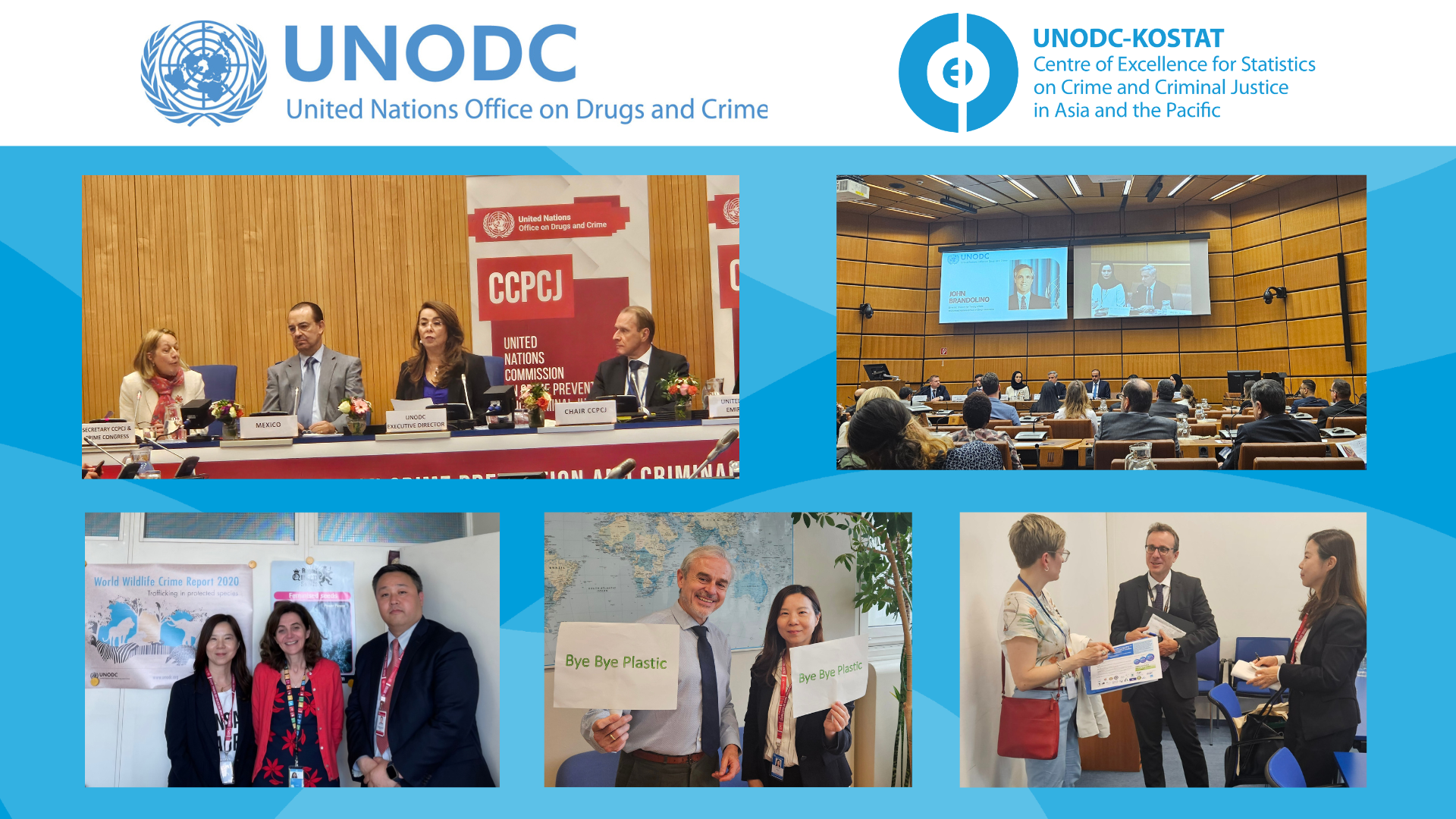
Vienna, 13-17 May 2024 – The 33rd session of the Commission on Crime Prevention and Criminal Justice (CCPCJ) in Vienna gathered representatives from Member States, international organizations, civil society, and stakeholders to address global challenges in crime prevention and criminal justice. The session saw 1,500 attendees from 128 countries and 75 NGOs, with 97 side events covering various criminal justice priorities. Ten events focused on empowering women in justice and involving young people through the Generation Justice Initiative. Resolutions passed addressed rehabilitation strategies, child protection, trafficking, and preparations for the 15th UN Crime Congress in 2026, which will focus on environmental crimes.
With a primary focus on crime response policies, CCPCJ also highlighted the crucial role of statistics in shaping policy decisions. The event stressed the need for standardized tools to ensure data comparability and its integration into sustainability agendas.
Discussions revolved around international cooperation, technical assistance, and the integration of UN standards into crime prevention efforts. At the side event entitled “Meeting Digital Age in Criminal Justice”, Jonghee Choi, Coordinator of the CoE, and Dae-Hoon Kwak, Professor at Chungnam National University in the Republic of Korea, delivered a presentation highlighting the status of the International Classification of Crime for Statistical Purposes (ICCS) implementation in the Asia-Pacific region and shared research outcome on automating the linkage between the ICCS and the Korean Penal Code using machine learning technique under the title of "Machine Learning Techniques for Implementation of ICCS in South Korea".
Side events provided insights into cybercrime, challenges in tracking femicide data, the financial fraud aspects of organized crime, corruption playing a strategic role in crimes, and improved cooperation in Southeast Asia. Sessions also emphasized the need to better detect trafficking and develop legal frameworks to support restorative justice.
Jonghee also discussed with the UNODC colleagues from headquarters and regional office the development of crime statistics, which serve as crucial evidence for crime prevention and criminal justice policies. The discussion included upcoming regional meetings and workshops, enhancing the quality of trafficking in person data, and measuring cybercrime.
The participation in the CCPCJ also served as an opportunity for the CoE to collaborate with Jean-Luc Lemahieu, UNODC Director of the Division for Policy Analysis and Public Affairs, in participating in “Bye Bye Plastic”, an environmental campaign initiated by the Ministry of Environment in the Republic of Korea. The campaign highlights the need to raise awareness of environmental issues and reduce the pollution caused by the unnecessary use of plastics. Plastics are one of many factors that cause biodiversity loss and climate change, which can contribute to crime against the environment. By taking action in our everyday lives, we can make our planet more sustainable.
Going forward, the CoE aims to stay engaged in global forums, foster collaboration in crime statistics, support Member States in the implementation of UNODC tools, and explore advanced technologies like machine learning to enhance the regional criminal justice system efficiency.
Further information on the CoE can be found here, Twitter @CoE_UNODC and Facebook @UNODC.KOSTAT.CoE.